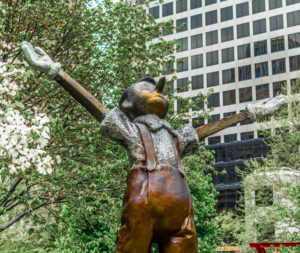 Definition of false advertising
Definition of false advertising
The offense of false advertising appeared in France in 1963 through a finance law which required, for this offense to be constituted, that bad faith be demonstrated and that the false allegations concern one of the elements listed by the law. The field of incrimination was therefore very limited, which led the legislator to broaden it 10 years later, with the law of December 27, 1973, which no longer made the constitution of this offense conditional on proof of bad faith.
Since then, this offence has undergone a number of legislative changes, in particular reforms in 2008. The most recent of these changes is the March 17, 2014 consumer law, which increases the repression for the offense of false advertising, or deceptive commercial practice.
These legislative rules are now contained in Articles L.121-1 et seq. of the Consumer Code.
The offense of misleading advertising presupposes the meeting of two criteria namely a commercial practice and a misleading character, to be constituted.
When advertising is aimed at a specific audience, the assessment of the misleading character can be made in concreto, i.e. according to the understanding by the specific group targeted by the advertising.
Most often, however, this assessment is made in abstracto.Indeed, jurisprudence has taken the habit in this context to refer to the notion of average consumer, i.e. the individual of average intelligence, endowed with a normal critical sense. Indeed, it considers that the public should not be exempted from any effort.
Thus, the judge evaluates whether the advertisement is likely to mislead this average consumer, , based on an average degree of discernment to determine whether the misleading character necessary to constitute the offense of false advertising is sufficient.
This approach allows the jurisprudence not to retain this offense in the case of « hyperbolic advertising », i.e. advertising whose degree of excessiveness, parody and emphasis is such that it cannot mislead the average consumer, who cannot therefore be deceived by such advertising.
The case law of the Samsonite case
This assessment was established in 1984 in a famous case, the « Samsonite » case, which has become a reference case law. In this case, a commercial for the brand of suitcases Samsonite was at stake. The commercial featured a kind of soccer match in which the players were bulldozers and the ball was a suitcase of the brand Samsonite. During this match, the suitcase was badly handled and passed several times under the wheels of the bulldozers, but ended the match unharmed. A competitor of the Samsonite brand had then acted in false advertising.
The Court of Appeal considered that the offense was not constituted since this advertising could not deceive an average consumer and that it was necessary to take into account the degree of discernment of the average consumer who could not be perceived as « weak-minded ». The Court agreed with Samsonite, stating that « “advertising hyperbole […] cannot by its excessiveness and exaggeration normally deceive anyone” ». In a 1984 decision, the Court of Cassation confirmed the decision of the Court of Appeal, and thus created this jurisprudence.
What penalties for false advertising?
Article L.121-6 paragraph 1 of the Consumer Code, resulting from the law of March 17, 2014 on consumption, provides for misleading commercial practices, including false advertising, a penalty of two years imprisonment and a fine of 300,000 euros.
For example, Alexandre-M. BRAUN obtained, by a judgment rendered in 2016 by the 31st chamber of the Tribunal de Grande Instance of Paris, the acquittal of the director of a school of osteopathysued by the Ordre des Médecins because of an advertisement stating “Train yourself in a general manual medicine that listens to the body”.
He was sued on the grounds that this presentation could lead to the belief that osteopathy was a medical discipline, according to the arguments of the plaintiffs. The osteopath was acquitted, the court considering that this publicity was not misleading for the average consumer.
Maître BRAUN defends, both persons suspected of being the authors of misleading advertising and victims wishing to file a complaint for misleading advertising, whether published on the internet or by more traditional means.
